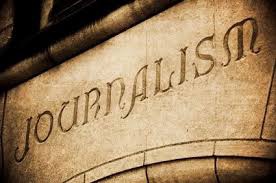 File photo
File photo
Democratic governance in any society cannot be devoid of challenges. The French thinker Francois-Marie d’Arout (1694-1778) better known as Voltaire asserted that democracy is the idiocy of the masses and that the constitutional monarchy that he witnessed in England must be the ideal forms of government.
The Austrian psychologist, Alfred Adler (1870-1937), claimed that final fictive goals regulate the conduct of an individual. For example, the promise of eternal blissfulness in heaven will regulate the behavior of a Christians.
As a nation, Ghana since 1992 has chosen the path of multi party democracy in spite of the challenges. Press freedom is an essential component of democratic governance. This partly explains why President J.A Kufour and his NPP administration (2001-2008) must be commended for repealing the criminal libel law.
The hard works of the investigative journalist Manasseh Azure Awuni in bringing rots, administrative ineptitude and corruption at Ghana youth employment development Agency (GYEDA) and Savannah accelerated development authority (SADA) are of no mean repute.
However, my shock knew no bounds when I read an article at peacefmonline.com with a cation: “If The Paralysed 'Montie' Amputees Were NPP - Manasseh Azure Awuni Writes.” The heading is not only scary but direct affront on the works of a state institution.
Mr Awuni has a democratic right to point out the weakness of any state institution even so he must not place it within the pale of the age-long NPP-NDC political antagonism.
Politics of equalization is a major setback to Ghana’s developmental fortunes. The former United State Supreme court Judge, Oliver Wendell Holmes, Jr. said: “I have no respect for the passion of equality, which seems to me merely idealizing envy-I don’t disparage envy, but I don’t accept it as legitimately my master.
I have no intension to write and endorse the unassertive comments made by the panelist of Montie FM, but stressing the significance of separating wrongdoing from NPP-NDC tension.
Certitude is not the test of certainty. We have been cocksure of many things that were not so (Oliver Wendell Holmes Jr). This somewhat explains why a meticulous investigative journalist like Manasseh Azure Awuni must not join the bandwagon of the normal NPP-NDC friction. Even though there are subjective journalist, I think as Ghana is approaching general elections, it is imperative respectful journalist like Mr. Awuni and other journalist refrain from inflaming tension.
When journalist sacrifice their conscience, professionalism and objectivity on the unholy altars of politicians’ ego-centric convenience then the development of the country could be far from truth. The media is inadvertently the fourth organ of government and any good democratic governance is anchored by a vibrant media.
Thus, it is only fair that the journalist, far from trying to sustain or maintain a pose of Olympian detachment, should allow the public identify what his or her own personal convictions are. This is notwithstanding the fact that human values are to some extent inseparable from any qualitative survey and therefore reserve such empathy for journalist Manasseh Azure Awuni.
Immanuel Kant (1724-1804) claims that our minds contextualize and limit reality, and that we will never be able to transcend these limitations The Moravian philosopher Edmund Husserl came out with a principle known as epoche which must be useful to professional journalist.
Husserl claimed that people take the various aspects of their lives (language, culture, gravity, their bodies, politics, religion, etc.) for granted, and that these aspects are keeping people in captivity. The epoche, however, is the phenomenological reduction where one no longer accepts these aspects to be true. Thus journalist conducting investigation or writing publication must attain a self-consciousness by seeing himself as no longer a part of the things that he has come to accept in the world.
Husserl called this process “bracketing”. Bracketing of personal values, conviction, political and religious affiliations will help the investigator to allow issues to speak for themselves rather than speaking for the issue.
None of the individuals aspiring for the office of president in Ghana is bad as compare to what is going on in other African countries. The problems of Ghana could be attributed to the drawbacks of the 1992 constitution. The rule of the executive is dancing alluringly under the shadow of so-called rule of law. The powers given to the executive especially the president create subliminal dictatorship.
If the constitution gives power to the president to appoint Inspector-General of Police, the head of bureau of national investigation, chief justice, we cannot expect those institutions to be totally independent.
There has been several calls to detach attorney general’s department from the ministry of justice but all to no avail. There must be a comprehensive national debate on the powers of the president. Journalist on their part must allow issues to speak for themselves instead of speaking for issues.
The idea of nationhood must be raised above partisan party interest to move our country forward. We are common people with one nation. I humbly stand for corrections and feedbacks on this article must be address to the following emails:
Nana.osei@mail.alfredadler.edu Padigogoma77@yahoo.co.uk N_yawosei@hotmail.com